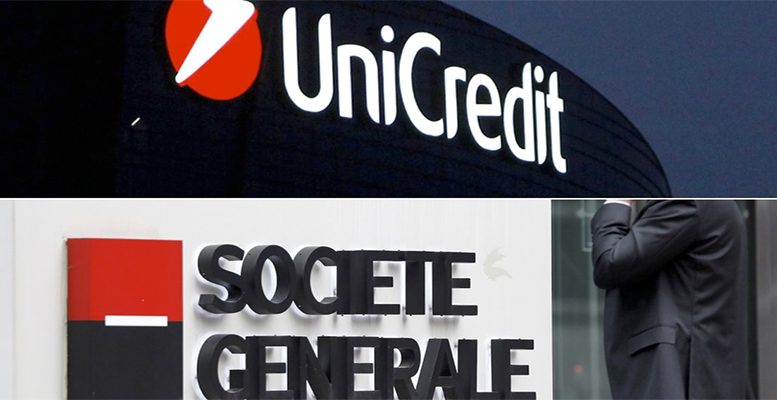At the moment it is just a rumour, but according to the economic press, Unicredit and Societe Generale have been studying their merger for months, but the political instability in Italy has caused this to be delayed. Moreover, on Sunday Société Générale denied any official approach between both entities.
Alphavalue’s analysts believe that such a combination would attract the support of pro-European interests, including regulatory bodies. However, they are not particularly enthusiastic about the project.
Whatever the outcome, this reactivates the speculative environment in the banking sector and could push other large banks to show interest.
For Bankinter’s economists the operation would make strategic sense and it could fit financially if the dominant bank – Unicredit in principle – didn’t pay an excessive control premium.
Their reasoning is as follows:
- The combination of the two banks would create the third largest bank in Europe in term of market capitalisation – this would be over 67 billion euros (34.332 billion euros from Unicredit and 32.833 billion from Société Générale) at current prices – and in terms of volume of assets only Santander and BNP would be ahead.
- It would facilitate the diversification of revenues by business lines and geographical exposure. Unicredit would have access to bigger revenues from investment banking and the French market. And for its part, Societe Générale would increase its weighting in commercial banking, particularly in Italy and Germany. Both lenders would gain critical mass in Eastern Europe.
- Both banks have comfortable capital ratios (el CET-I FL of Unicredit in Q1’18 was 13.0% and that of Société Générale 11.2%) and valuation multiples in terms of P/BV are similar (0.6x for Unicredit and 0.5 x for SocGen). This is a factor which would facilitate the exchange ratio in a hypothetical merger through absorption via a share exchange.
- In terms of PER, Unicredit is trading around 9.2x estimated EPS for 2018 (vs 8.2x for SocGen). So in line with our estimates, the operation would be neutral in EPS terms for Unicredit shareholders if the premium offered was between 12% and 15% – depending on the synergies which the combination of businesses generated.In principle, the operation would be more beneficial for Société Générale shareholders who would receive a control premium when the exchange ratio was established. We maintain our Buy recommendation on Unicredit based on the following:
- The merger deal doesn’t look imminent and we think it’s highly unlikely that Unicredit will launch a bid with a high control premium for a bank whose current ROE is lower than its own.
- The recent correction in the Italian bourse and, in particular, its banks, offers an investment opportunity in entities with good fundamentals like Unicredit – comfortable capital ratio, double digit profit growth and attractive valuation multiples.





